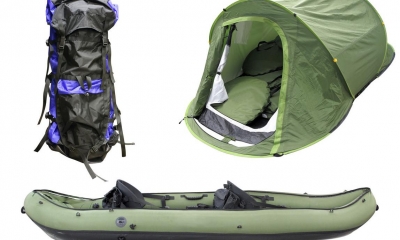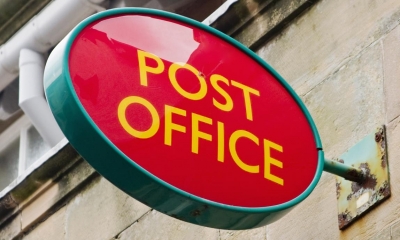
You need to comply with a certain amount of legislation that applies to all retailing businesses. The following is an overview of what might be relevant to you.
What licences does an outdoor equipment shop need?
Although there are no licensing requirements relating specifically to all outdoor equipment retailers, you should be aware that:
- if you offer credit facilities to consumers to help spread the cost of high-value purchases you will need consumer credit authorisation from the Financial Conduct Authority (FCA)
- if background music is provided in the shop you are likely to need a Music Licence from PPL PRS Ltd. There is an annual fee for this which you can pay online on the PPL PRS website
Knife dealer licence
If your business is in Scotland and you sell certain types of non-domestic knife with a blade over a specified length - for example hunting and fishing knives for filleting or divers' safety knives - you'll need to apply for a licence from the local authority. You can find out more on the Gov.uk website.
Licensing of second-hand dealers
You might decide to sell some second-hand equipment. Local authorities in Scotland require second-hand dealers to obtain a licence or registration to operate. This applies unless dealing in second-hand goods is only incidental to the main business activity. Elsewhere in the UK, some local authorities license or register businesses (with certain specific exemptions) where second-hand dealing is the main or a significant part of the business and is not just incidental. If you are in any doubt as to whether second-hand dealer licensing may apply to your business, contact your local authority trading standards department for guidance.
Sale of knives
If you sell knives you must comply with the Offensive Weapons Act which places restrictions on the sale of knives to people under the age of 18. You must also comply with the Knives Act, which states that knives must not be marketed in a way that's likely to encourage violent behaviour.
In Scotland, you need to obtain a licence from the local authority if you want to sell certain knives (for example, hunting knives used for filleting). You also need to display a notice in your premises and keep records of each transaction. There's more information on the Gov.uk website and your local authority will also be able to give you guidance.
Substances that could be used to make explosives
There are special regulations in place to prevent substances that could potentially be used to make explosives getting into the wrong hands. Some substances, which would normally only be available from specialist suppliers, are regulated and can only be supplied to a member of the public who has a licence to obtain and possess them. Other substances, although not regulated, are nevertheless of potential concern. An example of these substances, which are referred to as 'reportable substances', is hexamine, which is used in some camping stove fuel products. Any other products labelled with the 'skull and crossbones' hazard pictogram are also potentially of concern, although they are not classified as reportable under the regulations.
You must report any suspicious transactions (or disappearances due to theft) involving regulated or reportable substances to the police Anti-terrorist Hotline on 0800 789 321. A transaction could be suspicious for various reasons, for example because the customer insists on paying cash and/or wants an unusually large quantity of a product containing a reportable substance.
There's more information for businesses about regulated and reportable substances on the Gov.uk website.
Retailing
There is a wide range of legislation that applies to retail outlets and that protects the interests of the consumer. For example, goods and services must not be misleadingly described and the retail price of goods must be clearly displayed. There are also rules that cover online selling. You will be responsible for making sure that all goods or services are fit for their intended purpose and of satisfactory quality.
More information about general consumer protection and fair trading legislation is available on the Gov.uk and Trading Standards Business Companion websites.
Carrier bag charge
A minimum 10p charge applies for single-use carrier bags in England (other rules apply in Wales, Scotland and Northern Ireland). You can get detailed guidance from the GOV.UK website.
Health & Safety, fire
You must comply with workplace health and safety and fire safety legislation.
Employment legislation
Anyone employing staff must comply with employment legislation. Important areas of legislation include recruitment, employment contracts, pay, working hours, holidays, employment policies, sickness, maternity, paternity, discrimination, discipline, grievances, dismissals, redundancies and employment tribunals.
Insurance for an outdoor equipment shop
Contact an insurer or insurance broker and explain exactly how your business will operate - they will then explain what insurance cover you must have by law, and other cover you should consider. This might include:
- premises, premises contents and stock
- goods in transit (being collected or delivered)
- cash
- business interruption
- employer's liability
- public liability
- product liability
- motor insurance (for delivery vehicles)
It is worth noting that some buying groups and trade associations offer their members special insurance policies, which might save you money and provide the level of cover you need.


